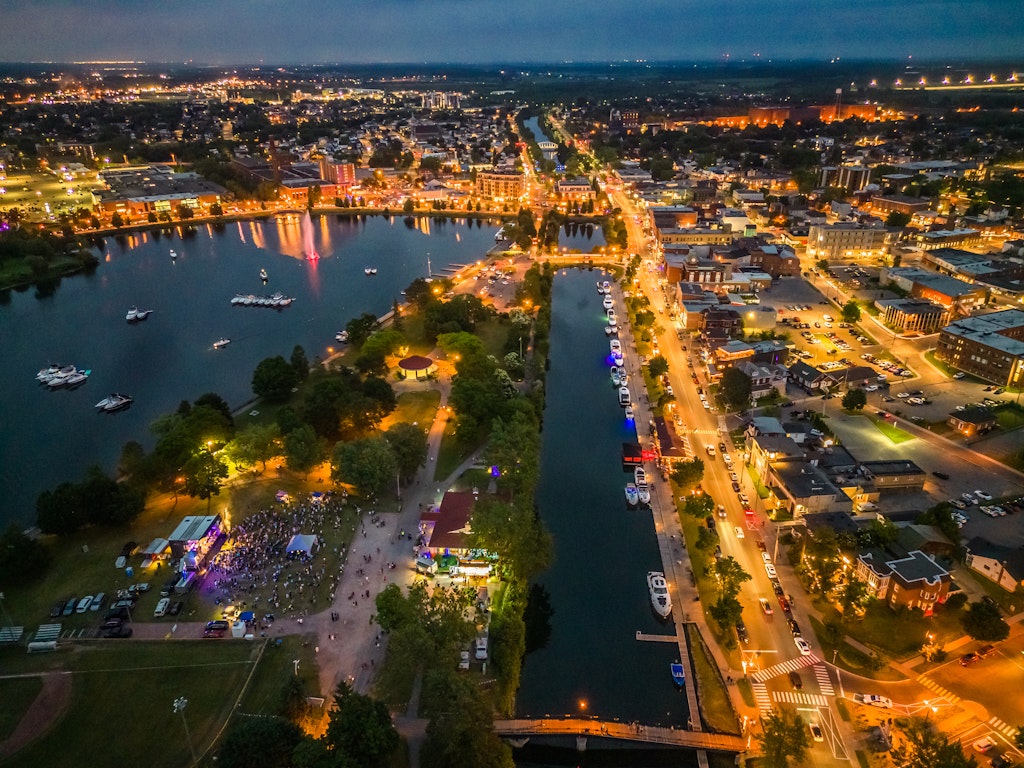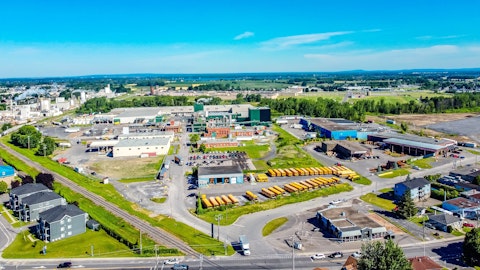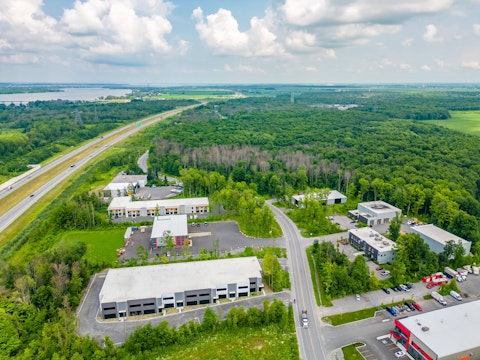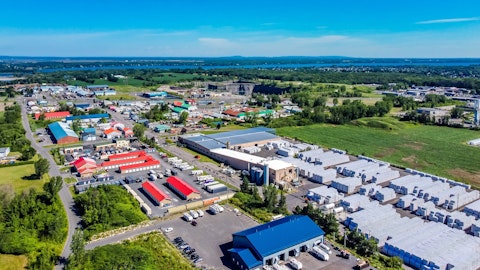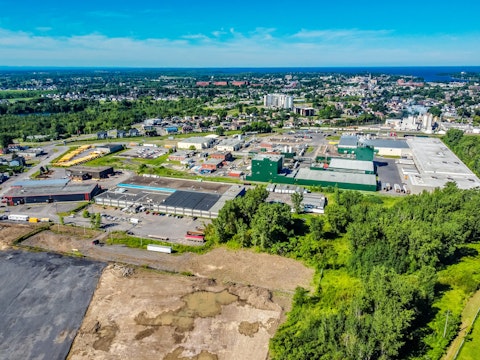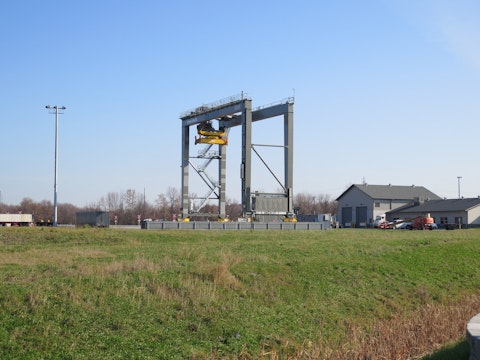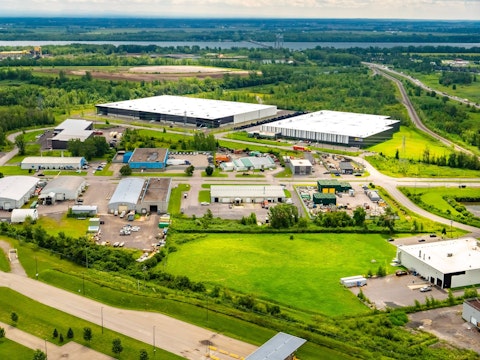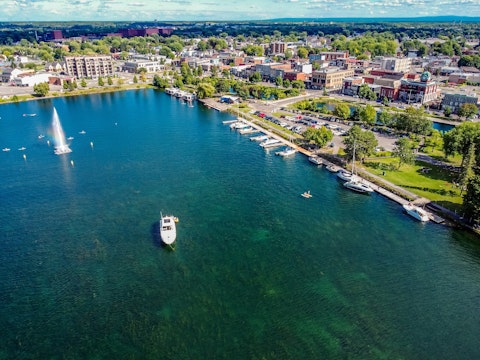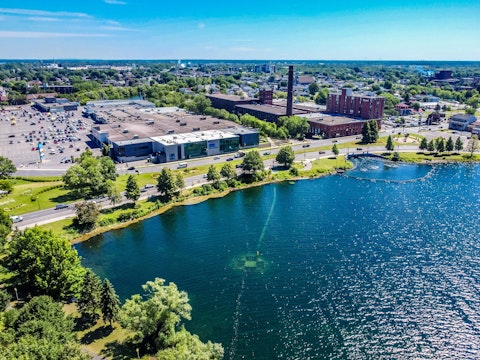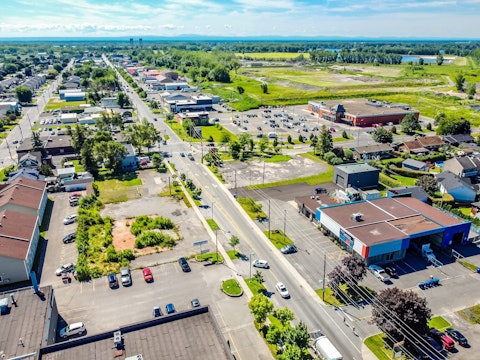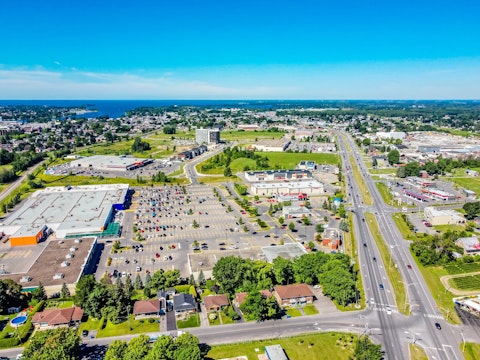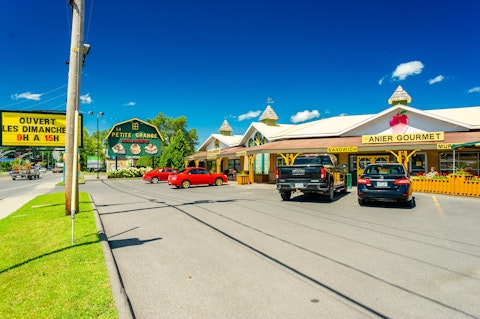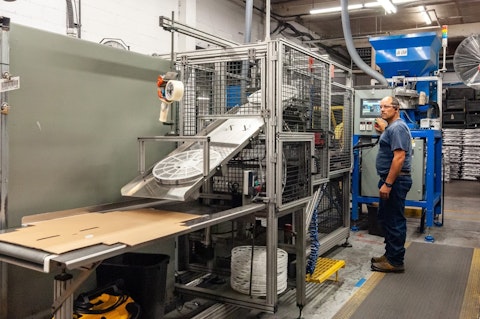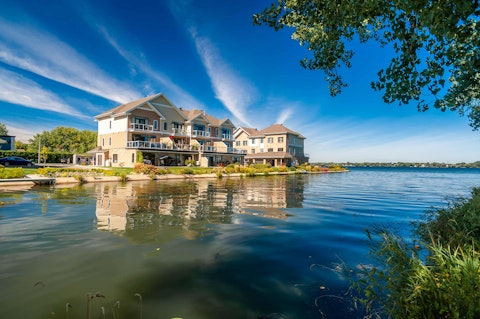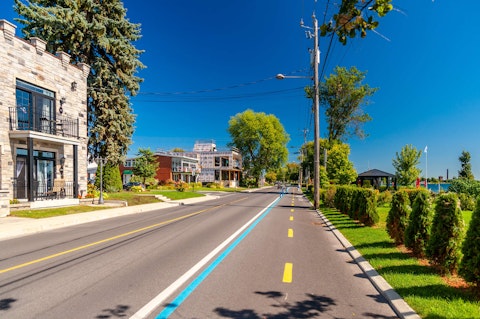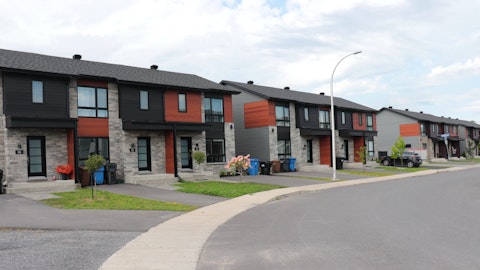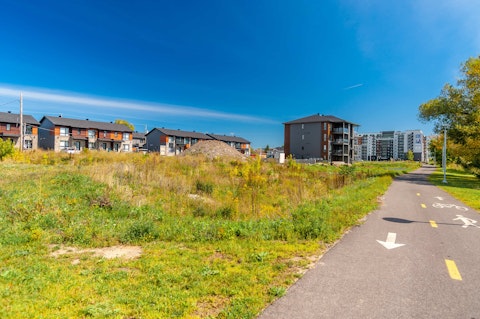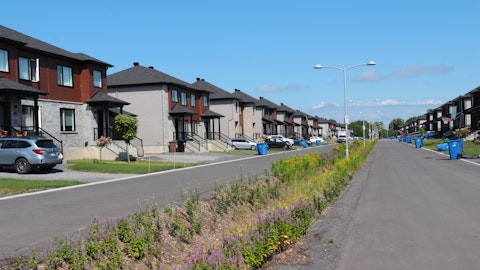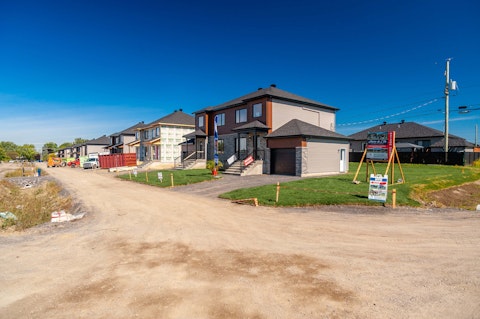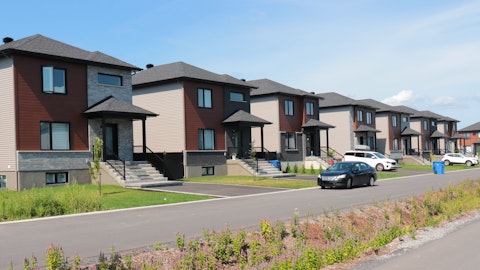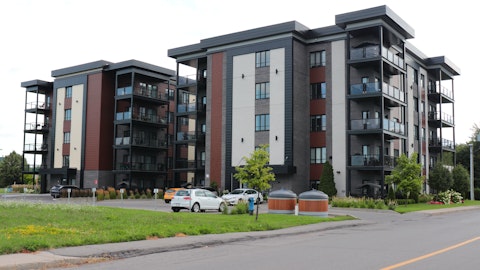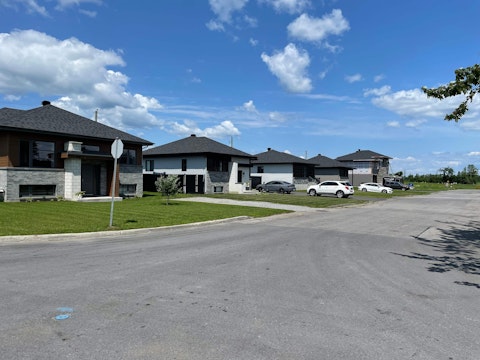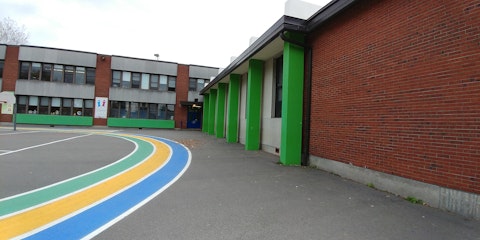Socio-economic profile
The City of Salaberry-de-Valleyfield is pleased to present its latest socio-economic profile, based on the latest data provided by Statistics Canada, Institut de la Statistique Québec and its other valued partners.
Identify your market potential with the support of the City of Salaberry-de-Valleyfield's Economic Development team, who can provide extensive information on the commercial and industrial sectors. A one-stop shop for existing companies and entrepreneurs looking to set up a business on the territory, the team is pleased to offer support tailored to your needs.
Contact us today to make your business project a reality!
Download the following fact sheets
Salaberry-de-Valleyfield: Vitality and opportunities
Located at the crossroads of Québec, Ontario and the U.S., Salaberry-de-Valleyfield offers a unique living environment in a natural and urban setting. The last few years have clearly shown that Salaberry-de-Valleyfield is booming, thanks to a strong, renewed economy.
Location
The city has
Over 44,000 residents
*Source : Institut de la statistique du Québec 2021
Booming residential development: 10,000 new addresses between now and 2032
Enviable geographic positioning
Salaberry-de-Valleyfield is located at the heart of the main trade corridor that runs along highways 20, 30, 530 and 40 as well as the St. Lawrence/Great Lakes Seaway.
Just 25 km southwest of the Island of Montréal and 30 minutes from Montréal-Trudeau airport, Salaberry-de-Valleyfield is easily accessible!
It is also served by Highway 30, the main bypass around the Island of Montréal, which provides access to the largest economic markets in Québec and North America. This highway connects Salaberry-de-Valleyfield to Montréal's South Shore in 40 minutes.
The region’s most populous city
Salaberry-de-Valleyfield is a major hub for employment and institutional services. In fact, 13,736 people* living outside the area commute to Salaberry-de-Valleyfield every day for work. The city also meets the needs of neighbouring residents. The commercial catchment area, within a 25 km radius, attracts a population of over 146,000**.
*Source: Origin-Destination survey 2018 **Source: Statistics Canada – 2021 Census
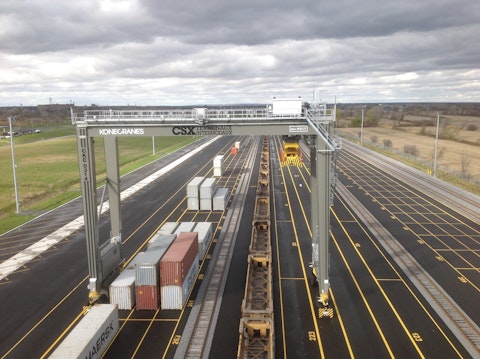
2 railway networks
Over 50 km of rail lines run through the Beauharnois-Salaberry RCM. This railway network, directly connected to the Perron Industrial and Harbour Park and Saranac Park in Salaberry-de-Valleyfield, is well situated within the North American network. It connects the city to both eastern and western Canada, as well as the eastern United States.
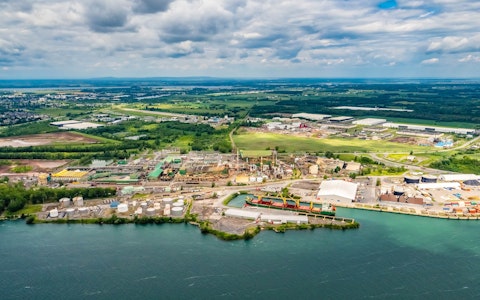
Deep-water port facilities
The Port of Valleyfield is located at the entrance to the Island of Montréal, along the St. Lawrence Seaway—a North American waterway, transportation and trade route that stretches 3,700 km from the Atlantic Ocean to the Great Lakes. The port is renowned for the transshipment and handling of liquid and solid bulk as well as general cargo handling services.
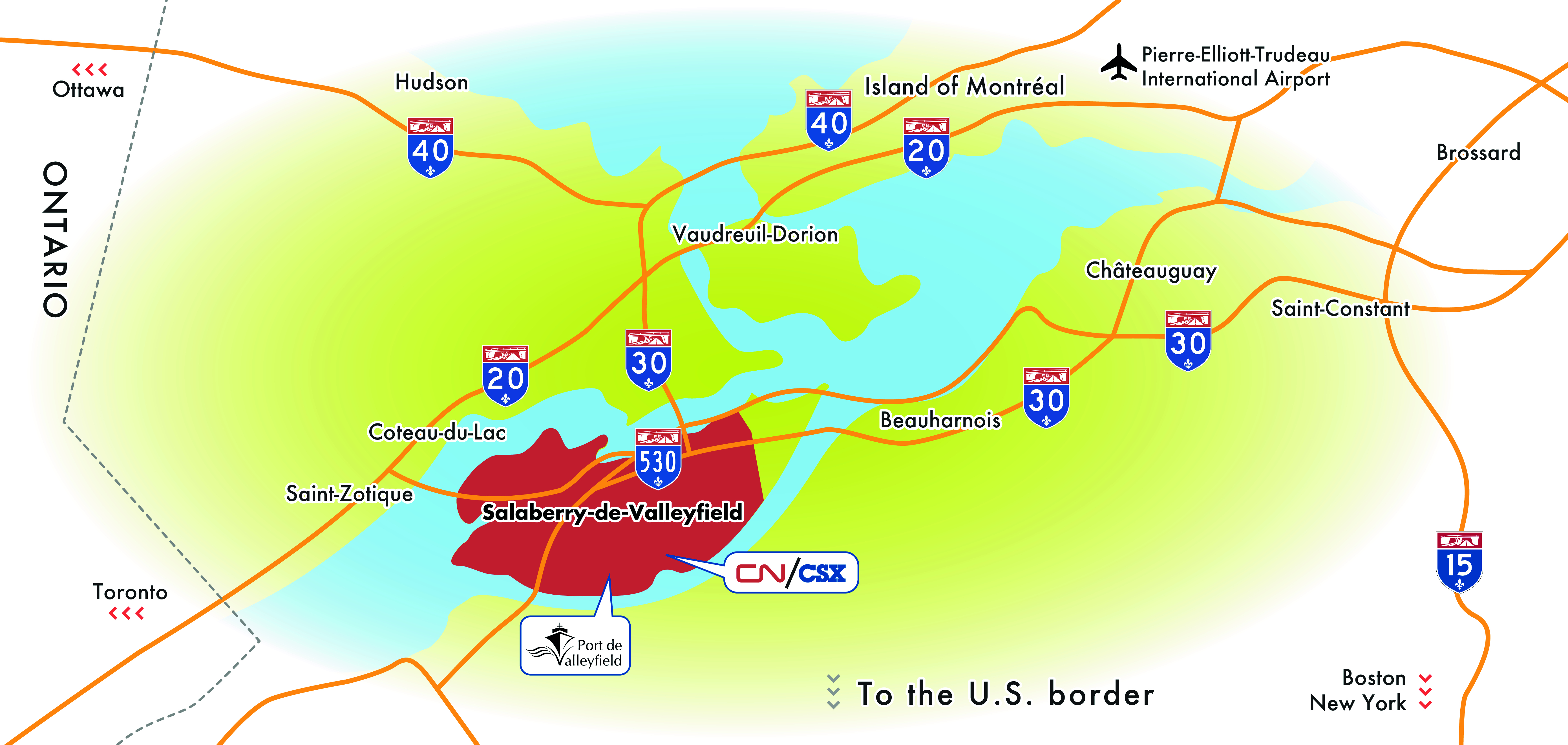
Demographics
This demographic profile is based on census data collected by Statistics Canada and analyses conducted by the Institut de la statistique du Québec. The available data shows that, since 2016, the population of Salaberry-de-Valleyfield has been growing more rapidly, with an increase of 7.8% between 2016 and 2021.
The forecasted population growth for Salaberry-de-Valleyfield is exceptional. According to the Ministère de l'Économie et de l'Innovation, the Montérégie region has experienced some of the strongest demographic growth in Québec over the past 30 years, and the outlook remains encouraging. Over the long term, the Montérégie population, including that of Salaberry-de-Valleyfield, is expected to grow faster than the population of Québec overall. Considering the number of new housing units anticipated over the next 10 years, Salaberry-de-Valleyfield's population is expected to increase by 47.4% over the same period.

2022–2032 projected population growth
Sources: Institut de la statistique du Québec 2021, Statistics Canada – 2021 Census, Urban Planning and Permit Department

2001–2021 population growth
- Population increase in Salaberry-de-Valleyfield between 2016 and 2021: 7.8%
- Population increase in the Province of Québec between 2016 and 2021: 4.8%
Source: Institut de la statistique du Québec 2022
Population by age group 2021

General Data
Population (2021)
Projected population growth

Households
- Proportion of active population: 60.2%
- Number of households: 20,070
- Average household size: 2.1
- Number of children per household: 1.7
Source: Statistics Canada – 2021 Census
Booming residential development

Source : Urban Planning and Permit Department 2022
Economy
In recent years, Salaberry-de-Valleyfield has enjoyed unprecedented appeal. Not only has the city’s economic growth improved its overall financial health, it has also positioned Salaberry-de-Valleyfield as a prime destination for new industrial, commercial, tourism and residential projects.
More than $452 million in overall investments were recorded in 2022, almost 7 times more than 10 years ago!
The population is expected to grow by 47.4% over the next 10 years, thanks to the 10,000 additional housing units anticipated over the same period.
The city is a major hub of services, commerce and industry for the entire region.

Total value of the permits issued
Industrial Parks
Between 2018 and 2022, a number of major companies announced their relocation to Salaberry-de-Valleyfield. As a result, more than $1 billion has been invested, and several million square feet of buildings constructed, across Salaberry-de-Valleyfield's four industrial parks.
Commercial Zones
No fewer than 1,280 businesses (shops, organizations and industries) are located throughout Salaberry-de-Valleyfield's territory. The greater downtown area alone is home to 347 businesses and organizations.
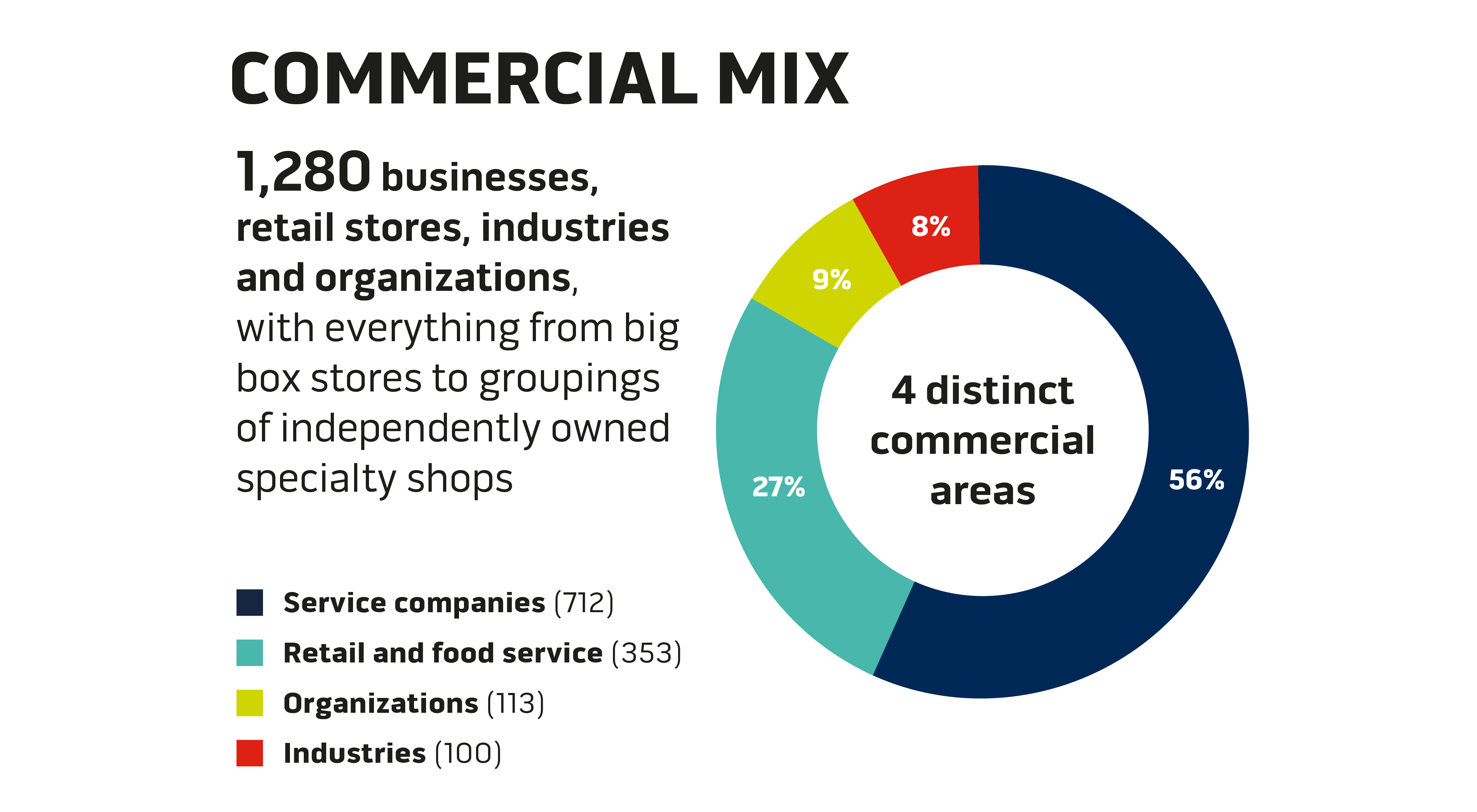
4 distinct commercial zones
Commercial composition of the downtown area
Job market
The City of Salaberry-de-Valleyfield is home to over 1,280 businesses, stores, industries and organizations, ranging from superstores to independent specialty stores. Many new companies have recently chosen to establish themselves in Salaberry-de-Valleyfield's industrial parks. As such, the vitality of the new generation, both industrial and commercial, is a guarantee of a prosperous future! Its manufacturing sector is the 2nd largest in the region, right behind healthcare, with over 3,600 jobs. The City's manufacturing expertise clearly sets it apart, as can be attested by a concentration of manufacturing jobs that is 2 times higher than the national average.
Growing labour supply
Population growth of 47.4% over the next 10 years.
Source: Hickey - Salaberry-de-Valleyfield 2023 Industrial Sector and Workforce Overview
Potential workers
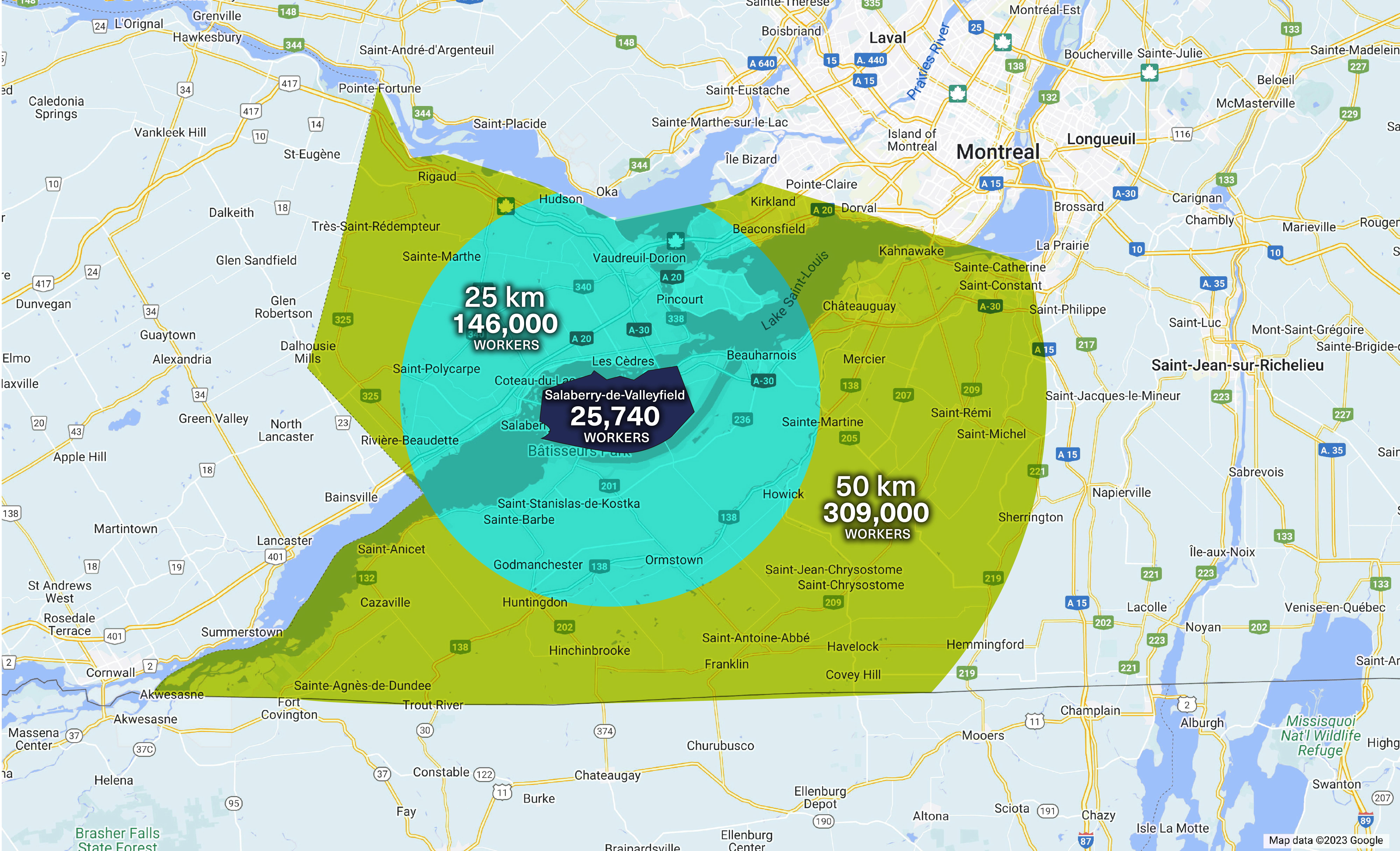
Housing market
Salaberry-de-Valleyfield is an attractive, vibrant city characterized by its history and the water that runs through it, and is a place that many new residents call home. Its innovative affordable housing program is making a name for itself, not to mention the fact that the average value of single-family homes remains highly competitive. Discover the many residential neighbourhoods currently under development by clicking HERE. For more information on upcoming residential or mixed-use developments within the territory, contact the Economic Development Department.

Housing
Source 3: Statistics Canada – 2021 Census
Source 4: Statistics Centris, 2e trimestre 2022
Types of residential buildings
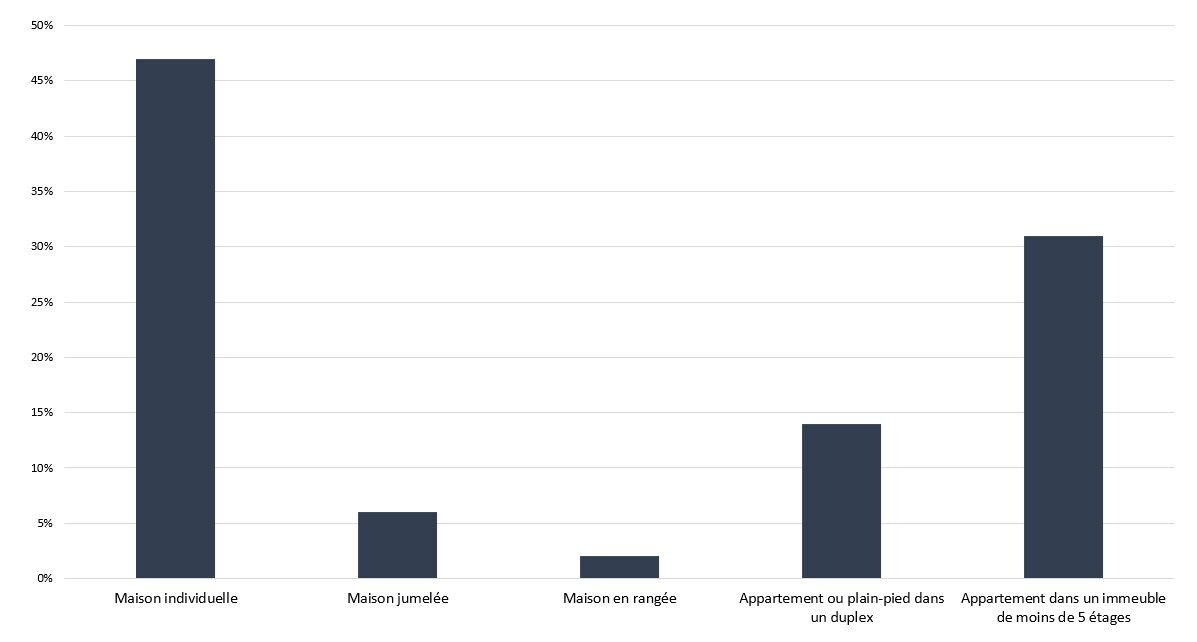
Source : Statistics Canada – 2021 Census
Housing outlook

Salaberry-de-Valleyfield has been welcoming a large number of new residents in recent years, and its overall population is expected to grow by 47.4% over the next 10 years.
Several residential neighbourhoods under development: notably the Baie, Grande-Île, Nitro and Champlain areas.

New rental units
5-year forecast

New rental units
6 to 10-year forecast
Mobility
Whether by car, public transit or active transportation, there are plenty of ways to get to and around Salaberry-de-Valleyfield. Numerous on-street and off-street parking spaces make it easy to shop downtown, while a network of bus routes connects the city to the Vaudreuil train station and to Angrignon metro and also provides options for travelling throughout the city. Numerous bike paths run through the downtown area as well as through commercial sectors, residential neighbourhoods and industrial parks.
Commercial artery | Average daily flow |
Boulevard Mgr Langlois | 33,000 |
Boulevard Hébert | 8,200 |
Avenue du Centenaire | 15,000 |
Historic downtown core | 12,800 |
Bellerive district | 15,000 |
Chemin Larocque | 10,300 |
Boulevard des Érables | 3,500 |
Source: data gathered by the Ministère des Transports, 2019
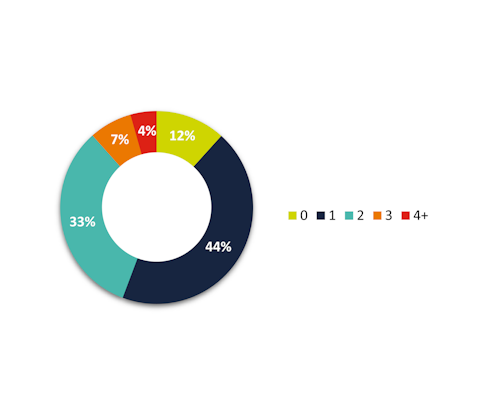
Number of cars per housing unit
Source: Origin-Destination survey 2018
Road network hierarchy
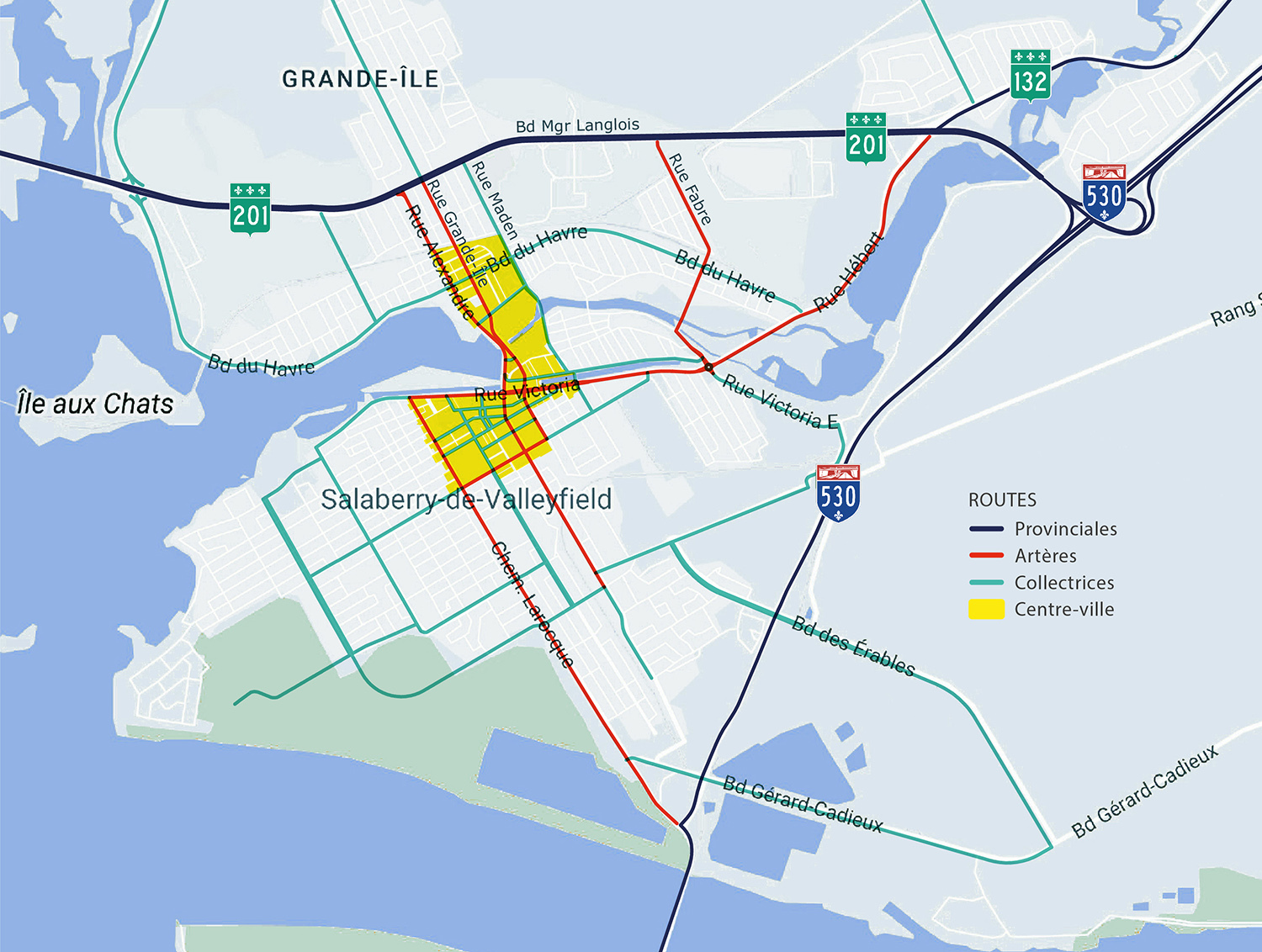
Education
Both young people and adults benefit from quality educational services in Salaberry-de-Valleyfield. Cégep de Valleyfield also offers students a wide range of programs as a springboard to academic advancement. With the general population expected to grow considerably over the next ten years, it goes without saying that the student clientele is also set to increase in the near future.
Sources : Centre de services scolaire de la Vallée des Tisserands and Cégep de Valleyfield, 2022
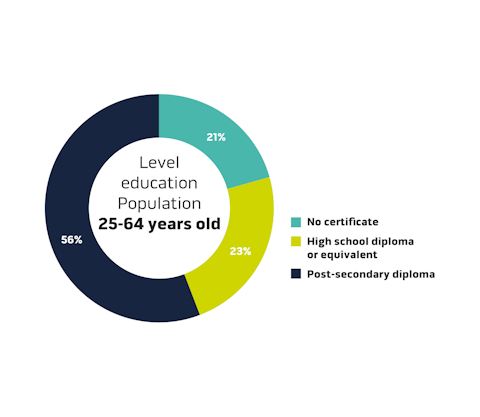
Population’s level of education
Source: Info Entrepreneurs – Statistics Canada 2016 (2022 estimate)

Educational institutions
Sources: Centre de services scolaire de la Vallée des Tisserands and Cégep de Valleyfield, 2022

Language skills
Source : Statistics Canada - 2021 Census
